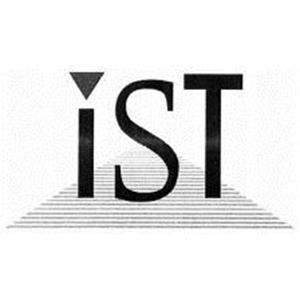Company A has rights to the tradename “IST” since 2003, and an Austrian trademark “iST” (fig), with a priority of 2011. Company B also has rights to the trade name “IST”, since 2009. Can Company A successfully defend its trademark against a cancellation action of Company B, based on the (prior) tradename? The Austrian Courts say yes, it can, due to a line of case law first established by the Austrian Supreme Court in 2012, which was recently applied for the first time by the Vienna Higher Regional Court (decision of 11 February 2016 in case 34 R 145/15s – iST, the decision is final).
TM and name of Company A Name and logo of Company B
By way of background, the owner of rights to an earlier company name or trade name (together referred to as “trade name”) used in the course of trade in Austria may request the cancellation (= declaration of invalidity) of a younger Austrian trademark if there is a likelihood of confusion with the earlier trade name [on a side note: as of yet, trade names cannot be invoked in opposition proceedings in Austria. This need not necessarily change with the implementation of the new TMD – DIRECTIVE (EU) 2015/2436, since the transposition of Art 5 (4) is optional]. Rights in both national and foreign trade names come to existence with mere use, more specifically, with a use in a way and from the moment in time that indicates the start of a continuous commercial activity in Austria. According to the case law, it is not required that the business identifier has acquired a certain renown, or even reputation. Moreover, in line with art. 8 Paris Convention, a foreign company need not even have an establishment in Austria, it is sufficient that it distributes products via another company, or is otherwise involved in economic activities which are specifically targeted at an Austrian public (see Supreme Court decision of 28.11.2012, case Om 10/12 – Confida).
In the case at issue, German company IST-Studieninstitut GmbH (IST institute of studies LLC), a private education provider (in the following “IST Germany” [Company A, above]), owns international registration no. 1010802 “iST” (stylized), with a priority of June 2009 and protection in Austria. The IR covers goods in class 16 and services in classes 35 and 41, with a relatively narrow specification (printed matter; stationery; instructional and teaching material, advertising, management, marketing, education and correspondence courses). IST Germany was founded in 2005, but its legal predecessor had conducted business under the trade name “IST” and “IST-Studieninstitut” in Austria since January 2003. The cancellation applicant, the Austrian Institute of Science and Technology Austria (short “IST Austria” [Company B, above]), established in 2009, filed a request for cancellation on the basis of (allegedly) earlier rights to its trade name “IST”.
The Invalidity Department of the Austrian Patent Office (short “PTO”) found that IST Austria had used “IST” as a trade name, but found prior use of IST Germany’s trade name iST, and thus denied the request of IST Austria. IST Austria was not successful with its appeal, either. Decisive factors in acknowledging IST Germany’s earlier trade name rights were that IST Germany could prove that its predecessor had participated in a trade fair in Austria already in 2003, and that it had entered into a cooperation with the Austrian Federal Sports Organization in the field of training and further education in 2004, with accompanying advertising and promotion activities in Austria and Switzerland.
No factor of relevance (or at least undisputed) was which goods and services the respective trade names had actually been used for, and if those of IST Germany corresponded to the specification of its IR mark (basically, this appears to have been the case). Notably, in order to establish likelihood of confusion in TM cancellation proceedings based on a trade name, the latter need not be used for identical or similar goods or services as the challenged TM, but only for an identical or similar branch of business (however, there is usually no likelihood of confusion if the branches of business are entirely different). Moreover, in order to rely on the priority of an earlier trade name, it was sufficient so far that the specification of the later trademark basically coincided with the branch of business of the earlier trade name. The idea behind all this is that the owner of a trade name, who has no material right to prohibit the use of the trade name of another company, shall not be entitled to block the other party’s registration of the other company’s trade name.
As a result, cancellation applicants in Austria, before bringing a request, should carefully verify the priority situation, in particular, make sure that the trademark owner does not own an earlier trade name, which it could successfully use as a defence. Moreover, cancellation applicants should make sure that the PTO and TM courts examine closely for which goods / services priority claims actually refer and try to limit the scope of such priority claims to a minimum extent.
_____________________________
To make sure you do not miss out on regular updates from the Kluwer Trademark Blog, please subscribe here.



 vs.
vs. 